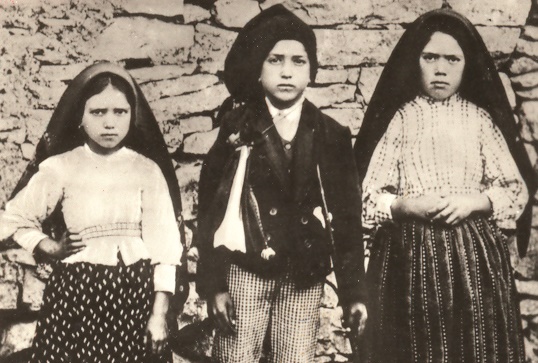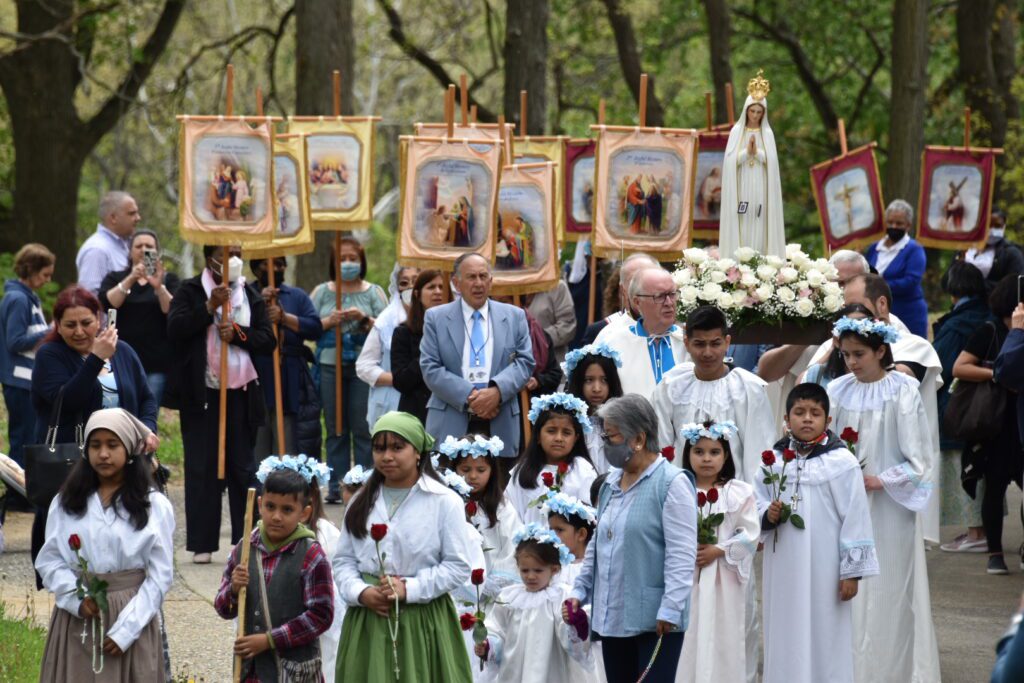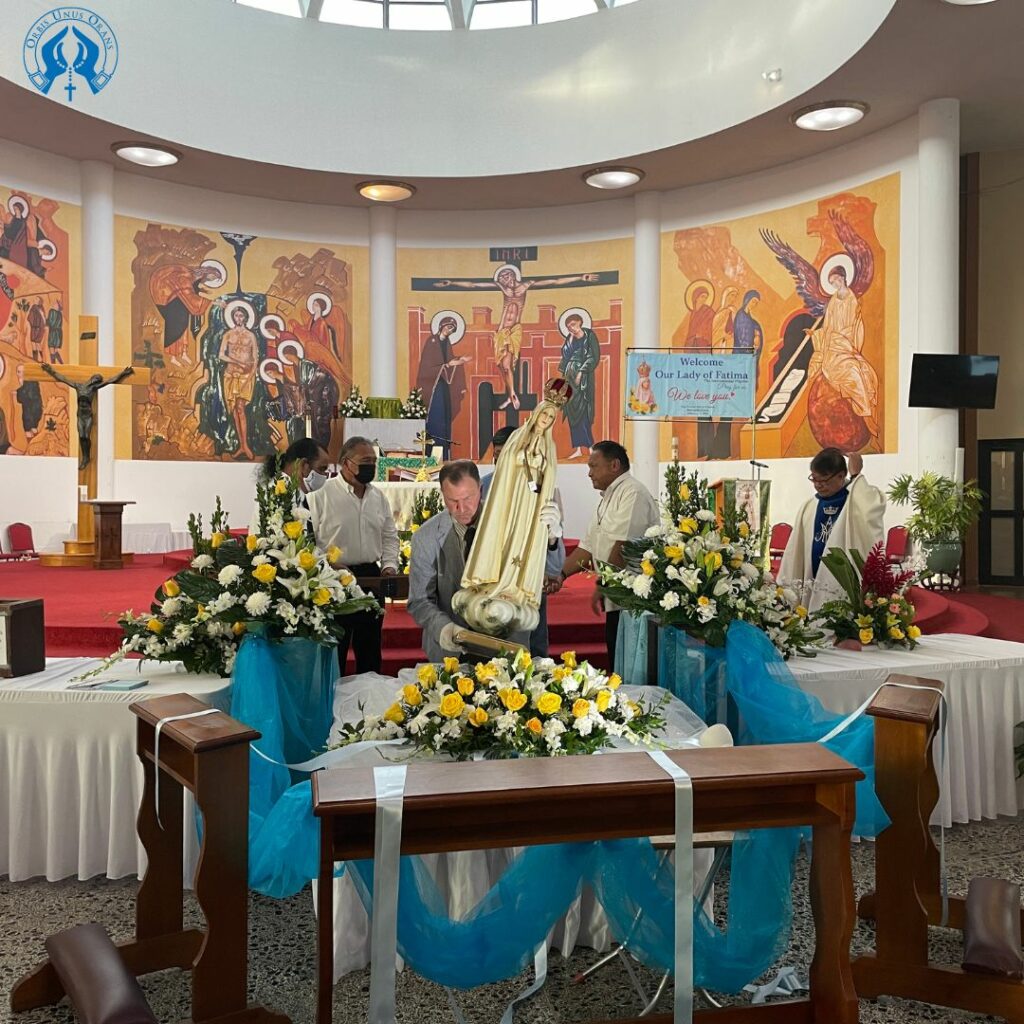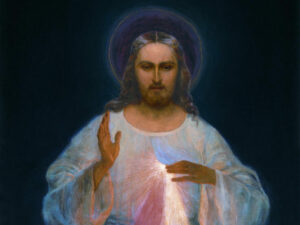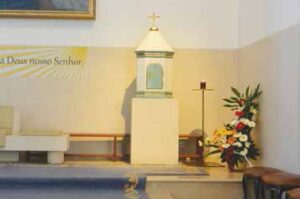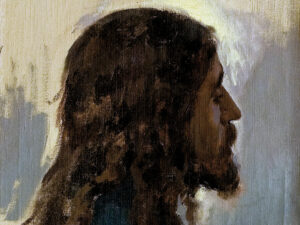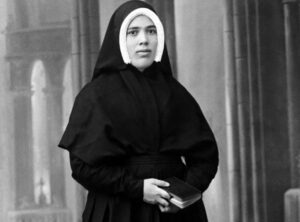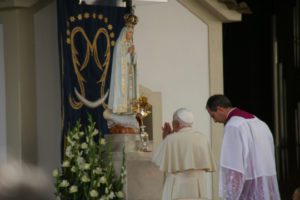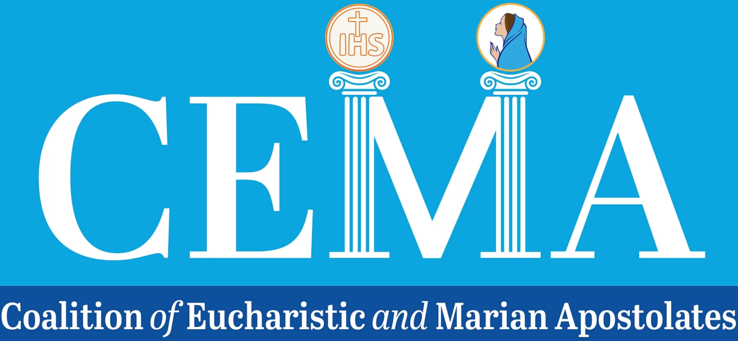

by Joseph Pronechen
The day the Miracle of the Sun took place at Fatima, there was an additional essential message for us during the apparition. That message comes from the appearance of St. Joseph, who with the Child Jesus, blessed the world; Our Lady was standing near.
Focusing on the Miracle of the Sun, we often overlook why this part of the apparitions has such great significance. It seems the world needs St. Joseph now more than ever – and heaven knew this.
First, St. Joseph has tremendous importance in the Holy Family and is an unequaled patron for us. After the Blessed Mother, “The Almighty has concentrated in St. Joseph, as in a Sun of unrivaled lustre, the combined light and splendor of all the other saints,” said St. Gregory of Nazianzen. St. Joseph’s appearance at Fatima reminds us of his exceptional role.
There, Our Lady called for the daily Rosary. Do we often remember that Joseph is an essential part of the Joyful Mysteries, living those mysteries with Mary and Jesus? He spoke with them daily. He prayed with them daily. He listened to them daily. His appearance teaches us that we must do the same. Joseph is saying in his typical way without spoken words — model yourselves after me. Live with Jesus and Mary through Mass, the Rosary, Scripture and prayer.
Since Joseph was the father in the Holy Family, all fathers and father figures need to take this to heart, because this is the foundation. If that foundation crumbles, the consequences are dire for the family and eventually society.
In his small book St. Joseph, Fatherhood and Fatherhood: Reflections on the Miracle of the Sun, Msgr. Joseph Cirrincione sees the convulsions of the sun following after the Holy Family as “an ominous foreshadowing of the consequences for the world which are sure to be felt if the true fatherhood of God and the traditional, strong role of the father of the family are rejected by mankind.”
At Fatima, Our Lady warned about Russia and the need for conversion. Right then the Communists were dethroning God and then continued to spread atheism in many other places. Later, as Msgr. Cirrincione explains, much of the non-Communist world was so infected by secularism in the 20th century that the Fatherhood of God was put on the shelf and man’s laws excluded God from much of life. Along with that came the deposing of the father in the family. By the 21st century, the family began to crumble, to be the target of attacks and to be dismantled.
St. Joseph appeared at Fatima to remind us of the strength fathers and families need. One of his titles in the Litany of St. Joseph is “Head of the Holy Family.” Msgr. Cirrincione makes clear, St. Joseph was not the head of the Holy Family because he was the holiest member. “He was the head of the Holy Family because he was the father of the family. As father of the family, he represented God the Father.” St. Joseph is “the heavenly Father’s counterpart in the Holy Family.” And Joseph, Mary and Jesus together are “a true reflection of the Blessed Trinity.”
Already in 1889, in his encyclical Quamquam Pluries (On Devotion to St. Joseph), Pope Leo XIII decried the depths to which society had sunk in faith, charity, morals and bold attacks on the “very foundations of religion.” His answer since “human remedies are insufficient?” It was necessary to beg for Divine assistance, beginning with Mary. He had already consecrated October to Our Lady of the Rosary — the title Mary would call herself 28 years later at Fatima. This time, Leo also called “for the Christian people, continually to invoke with great piety and trust, together with the Virgin-Mother of God, her chaste Spouse, the Blessed Joseph.”
Heaven seemingly confirmed this in the October apparition at Fatima, reminding us of another of his titles: “Pillar of families.”
St. Joseph also shows us how to live one of the key aspects of the Fatima message: the one on penance.
Sister Lucia told Bishop Correia da Silva that the Lord said to her: ‘The sacrifice required of every person is the fulfillment of his duties in life and the observance of My Law. This is the penance that I now seek and require.‘”
This means our daily duties, which sometimes seem monotonous. Just think how often St. Joseph had to craft a door, or stool, or carefully shape yokes for animals. Fulfilling daily duties as St. Joseph surely did is very important.
In a conversation later in the century, Sister Lucia told a visitor, “By ‘sacrifice’ Our Lady said that She meant the faithful fulfillment of one’s daily duty.” And the Rosary was important “because we must pray if we are to be able to fulfill our daily duty.”
As head of the family, fathers can imitate St. Joseph by fulfilling their duties, praying the Rosary, and encouraging and establishing a family Rosary. As St. John Paul II pointed out, “It is in the Holy Family, the original ‘Church in miniature (Ecclesia domestica),’ that every Christian family must be reflected.” This domestic church will become a stronghold, a fortress built on the solid foundations nothing will shake.
Fatima tells us to put God first, strengthen the family, look to St. Joseph’s help and example, and repeats the Bible’s message, Ite ad Joseph — “Go to Joseph.” Do so daily.
Joseph Pronechen is a Catholic writer and author, who contributes regularly to the National Catholic Register. His book, Fruits of Fatima, is available in our bookstore. This article first appeared in our Winter 2020 issue of Soul Magazine.


